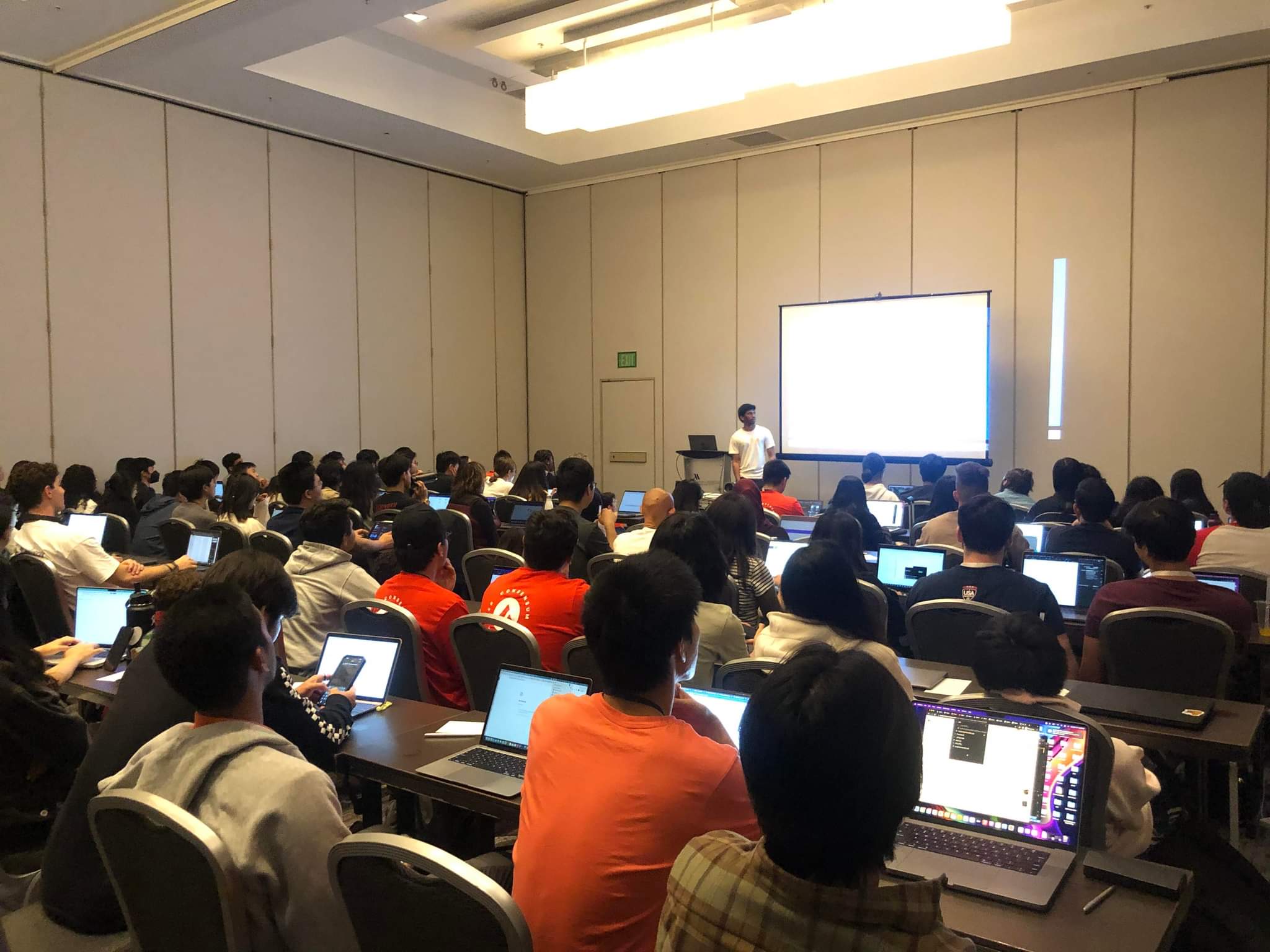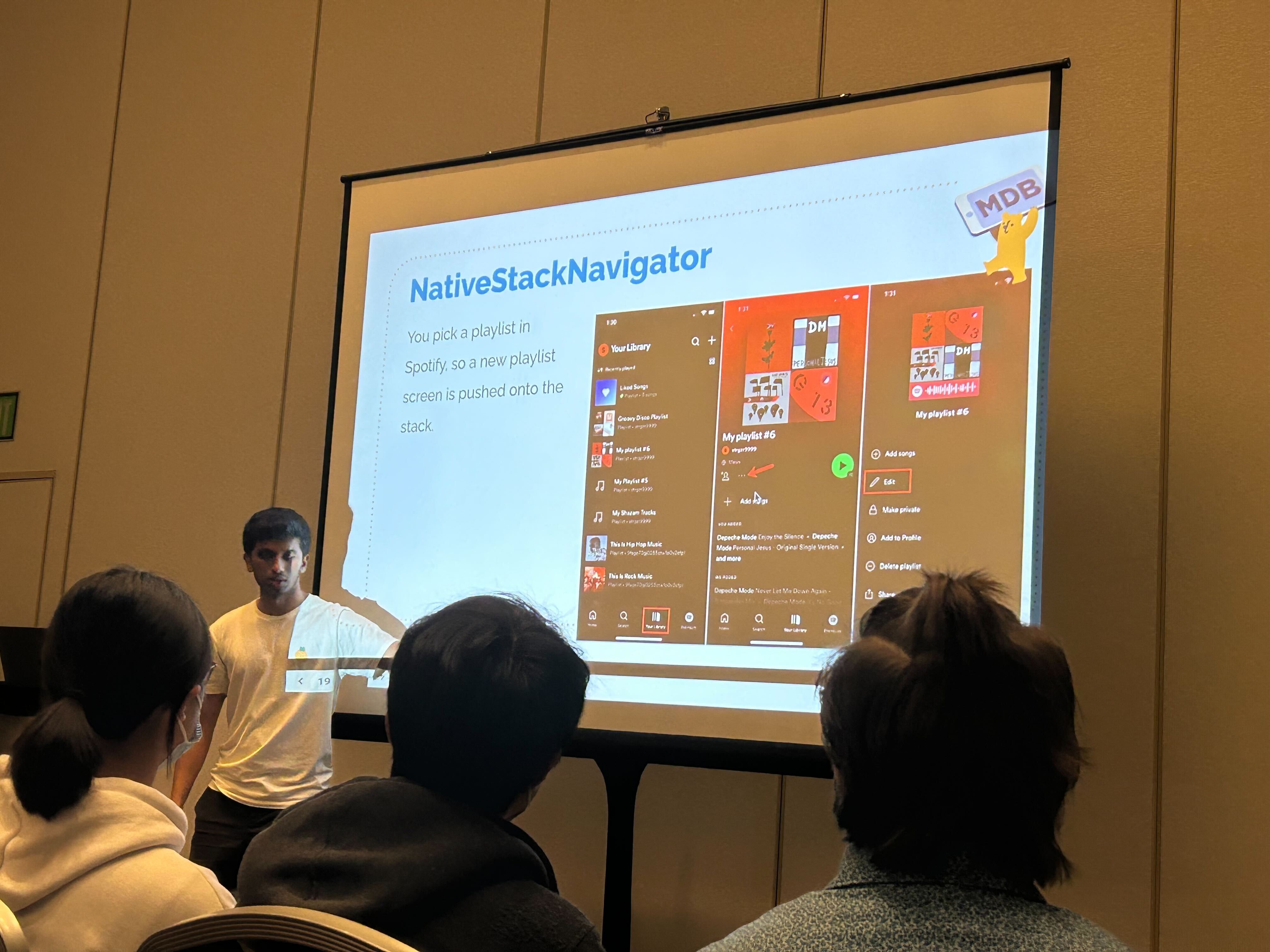Blog > Building Apps, a Workshop at CalHacks 9.0
Building Apps, a Workshop at CalHacks 9.0
Presenting a workshop at CalHacks, the largest collegiate hackathon in the world
772 words, ~ 4 min read
calhacks
mdb
workshop


This past weekend, I presented a workshop on Building Apps at CalHacks, the world's largest collegiate hackathon.
note: the workshop content, including the slides, setup instructions, and starter code and solution for the demo is available here.
Table of Contents
What is CalHacks?
CalHacks is a hackathon at the University of California, Berkeley. It's the largest collegiate hackathon in the world, with over 2,000 participants. You can read more about it here.
The event features hacking together projects as well as workshops and talks. I presented a workshop on Building Apps.
Preparing for the Workshop
Initial Thoughts
I can't speak for how other workshop presenters were contacted, but in my case, both of my roommates are CalHacks directors. I was asked to present a workshop on a topic of my choice. I was also asked to submit a proposal for the workshop, which included a description of the workshop, a list of topics that would be covered, and a list of prerequisites.
Quite literally, the workshop could be about anything, ideally something related to mobile development. However, there was only an hour for this workshop, meaning the entirety of mobile development (from JavaScript to building full-stack applications) could not be covered in-depth.
While I could have presented a workshop on a specific topic, I decided to present a workshop on building apps more broadly, talking about concepts that would be useful for hackers. This would allow me to cover a wide range of topics, including:
- What is an app and why is making an app useful?
- What is React Native?
- How does navigation work?
- What is a database?
- What is authentication?
One challenge with this choice is that it's not beginner-friendly. I would have to assume that the audience has some knowledge of JavaScript. However, I decided to take this risk because I thought it would be more useful for hackers and made sure to include a lot of guides in the accompanying material for the workshop.
Making Materials
To ensure that attendees had something tangible to walk away with, I wanted to include a demo. However, it might go too fast for the demo to be of use, so I figured including a slide deck would be beneficial.
I also made a companion page on the Learn MDB website, which includes the slides, setup instructions, and starter code and solution for the demo. I'll leave it out of this post; but everything is available at the link.
The Workshop
The workshop itself was pretty good. There were a lot of people, much to my surprise; every seat was taken to the point that some hackers were sitting on the floor.
The major hiccup? WiFi.
The initial plan was to work through the demo as the relevant slide sections were being presented, to visually see implementation of concepts following discussion.
At the hotel venue, however, there were so many people trying to access the internet that my computer wasn't able to access the Google Slides. I ended up starting a few minutes late and on someone else's computer as a result, only for the WiFi to magically work at the end of the slide deck to try to implement some features.
This led to me starting the demo a bit late, but I was able to get through it thanks to borrowing a computer and accessing the slides that way. I also had a few people come up to me after the workshop to ask questions, which was nice.
Closing Thoughts
I spoke with some of the people that came to the workshop, and I got some interesting perspectives and feedback. I thought I'd share some of them here.
Things That Went Well
- The workshop was good pacing and the content was interesting.
- The demo was useful.
- The presentation was delivered well from a public speaking perspective.
Things That Could Go Better
- The WiFi was a bit of a problem.
- The workshop could have been more interactive.
- The workshop may have been too technical. Many of the other workshops were more introductory.
All in all, I think the workshop went well. I'm glad I was able to present it, and I'm glad that people found it useful. I was also told that it was the most attended workshop of the event, which is pretty cool, though no exact numbers were given so I can't confirm that.
Found this interesting? Subscribe to get email updates for new posts.
First Name
Last Name
Previous Post
A Summer in Seattle at Microsoft